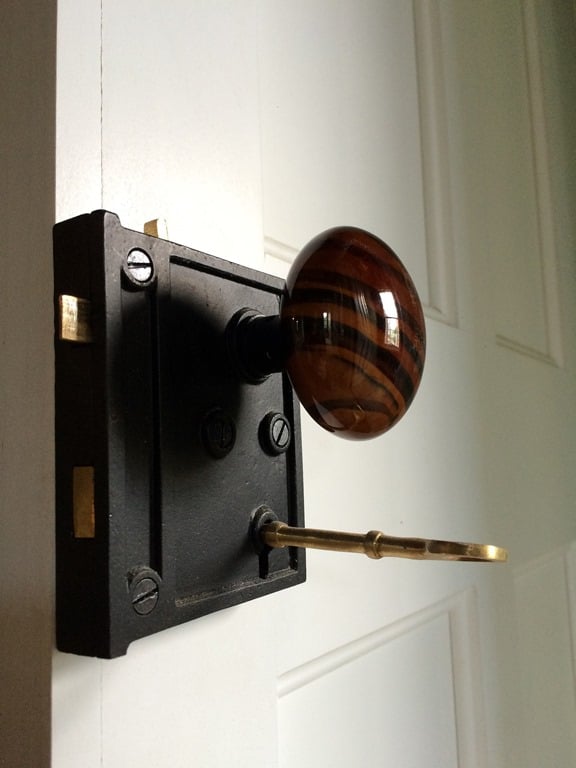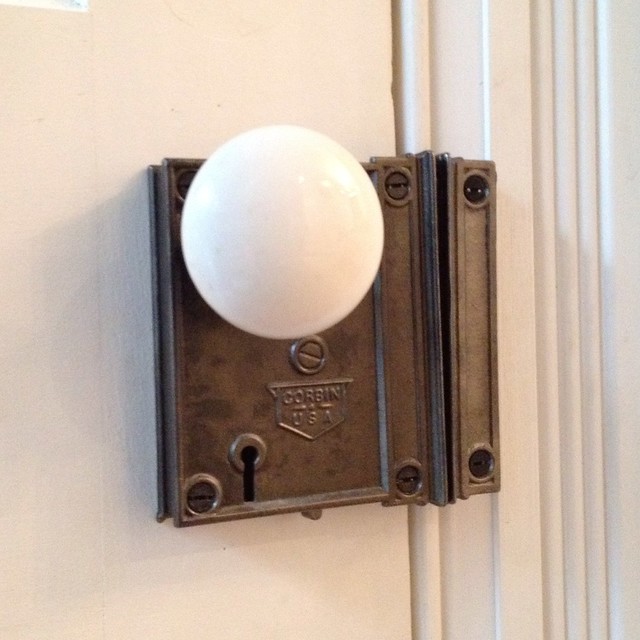You might consider removing the latchbolt from your rimlock and maybe fitting a tubular mortice latch to be operated by the same knob and spindle.
Fitting rim lock outward opening door.
A cylinder night latch of which the yale lock is the most common sort is an easily fitted lock that locks itself automatically when the door is closed.
Fitting a rim lock to a door is quite straightforward but does need care in the measurement and cutting for a neat finish.
The staple which secures the lock catch and bolt when the door is closed may have an endplate like the lock which will need to be recessed in to the door frame in a similar manner as for the lock endplate.
It is fitted to doors which open inward.
The angled yale outward opening plate can also be used when also fitting any of the standard asec rim locks.
The plate is cut into the door stop and the rim lock is set further back from the front edge of door.
The latch will then fall forwards out of the lock body 2.
Mortice locks deadlock sashlock latches rim cylinder locks.
A rimlock is really a very simple lock for a gate or door so called because it sits on the rim edge of a gate or door.
The cylinder night latch can only be opened with a key from the outside but can be closed and locked from the inside using the locking button.
Yale reverse strikes for outward opening doors model number 89ltsp and 89stsp suits most yale type latches.
Before fitting a rim lock remember that it does not provide as much security as a mortice lock being mounted on the side of the door it much easier to burst through a door fitted with a rim lock.
Position the staple on the door frame.
There are 4 lever rimlocks used on some utilities cabins that are designed to be used on the inside of outward opening doors but i do not think they have a latch.
It would not be visually obtrusive.
If the latch of the lock faces the wrong way for the opening direction of the door you will need to turn it round.
Fitting a rim lock.
Outward opening door lock at lockmonster co uk.
It is an easy plate to fit.
Commonly it is found on the inside of shed doors and on ledged and braced gates.
At the side of the lock body is a small pin which you can push upwards with a narrow screwdriver 1.
These are not really the most secure as they are really a bit flimsy weak and not all that secure as in most cases if you could get enough leverage to pull the gate open then the lock bolt.










